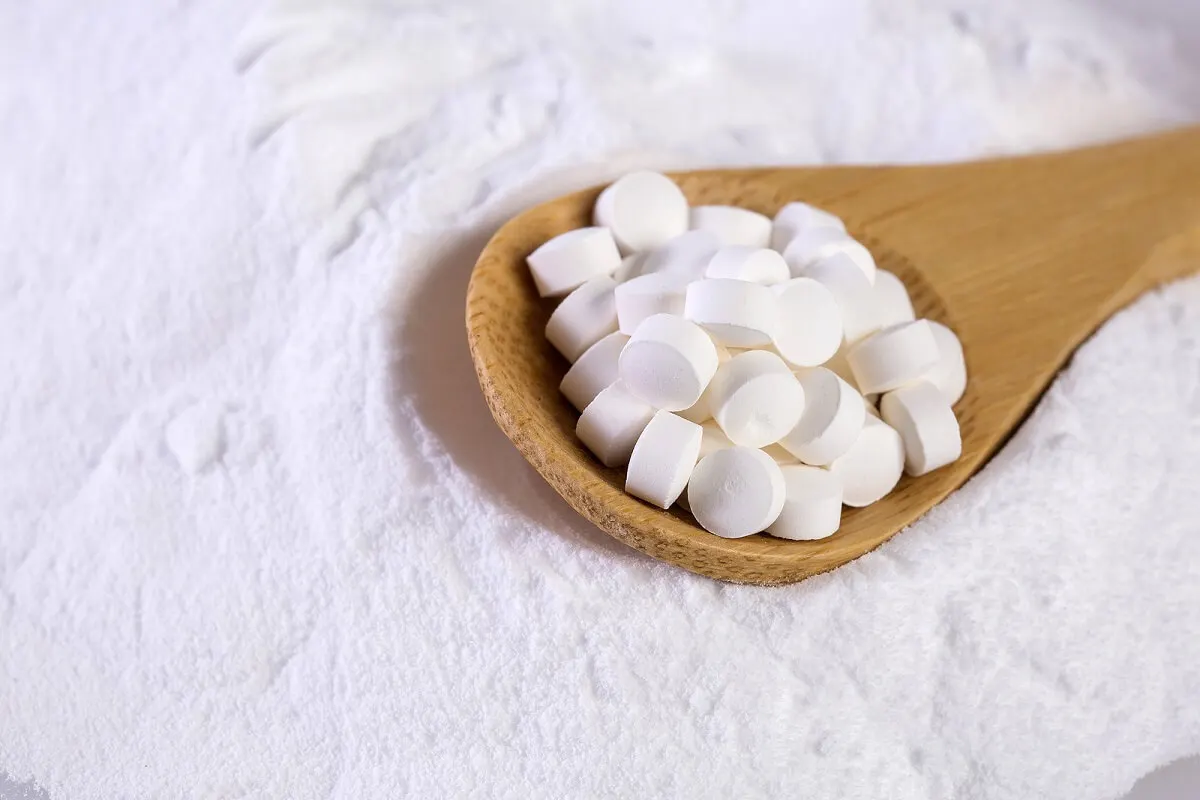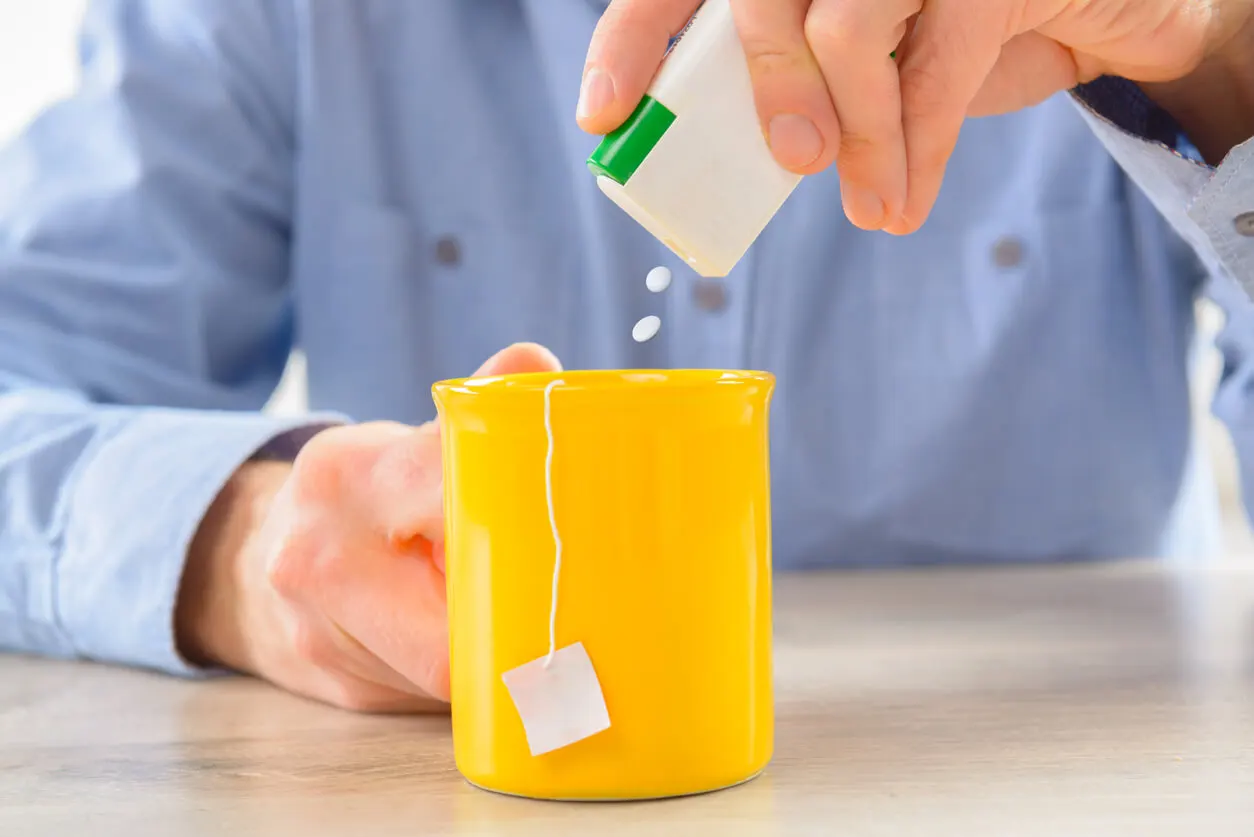Sweeteners and Heart Disease: Are They Linked?


Written and verified by the nutritionist Maria Patricia Pinero Corredor
In recent years, sweeteners have been in the eye of the storm for their possible relationship with an increased risk of heart disease. These substances are those that provide a sweet taste to food and beverages. And although the best known is sugar or sucrose, there are artificial versions with the same purpose.
The drawback is that it’s been determined that their regular intake is not as safe as previously thought. Right now, when talking about health, the suggestion is to limit their presence in your diet as much as possible. Let’s take a look at what science says about their relationship with heart health and how to reduce their consumption.
What are sweeteners, and how are they classified?
Sweeteners are substances that give products a sweet taste, taking as a reference standard the sweetness provided by sugar. They can be synthetic or natural; in addition, there are nutritive and non-nutritive sweeteners. The latter provide little or no calories, while the nutritive ones do contain calories.
Natural sweeteners
- Sucrose or cane sugar
- Honey
- Coconut sugar
- Fructose
- Glucose
- Inverted sugar
- Sorbitol
- Maltose
- Stevia
- Dates
- Luo Han Guo fruit extracts
Synthetic or artificial sweeteners
- Aspartame
- Sucralose
- Saccharin
- Neotame
- Acesulfame
- Advantame
Although this classification exists, the term “sweeteners” usually refers to artificial products. And although their purpose is to reduce the risk of health problems associated with excessive consumption of sugar or sucrose – such as obesity or the propensity to tooth decay – their regular presence in the diet has been a source of controversy.

We think you may be interested in reading this, too: White, Brown, and Muscovado Sugar: Similarities and Differences
Sweeteners and heart disease: Do they have any effect on our health?
For years, studies have been conducted on different sweeteners to learn about their effects on our health. The Food and Drug Administration (FDA) declared that most substances of this type are safe.
In fact, after several investigations, it was determined that their toxicity and the incidence of various diseases liked to their use are relatively low. Hence, they have been approved for marketing.
However, new reports speak of a possible link between the use of sweeteners and an increased risk of heart disease. In a study published in 2022 in the journal BMJ, researchers found that regular intake of these substances does indeed increase the risk of cardiovascular disease.
The study, conducted in France with 103,388 volunteers, 79.8% of whom were women, assessed dietary intake and consumption of artificial sweeteners. They analyzed the results with dietary records, as well as the industrial products consumed by each one.
The average intake of artificial sweeteners in one group was around 78 milligrams per day. There were others with a low intake of about 8 milligrams per day. There was also a group of people who did not consume these substances.
It turned out that the total intake of artificial sweeteners was associated with an increased risk of cardiovascular disease, as there were 1502 events. In fact, they were more associated with the risk of cerebrovascular disease, with 777 events.
Aspartame intake was associated with an increased risk of cerebrovascular events. In addition, acesulfame potassium and sucralose corresponded with an increased risk of coronary heart disease.
The study was observational, so it was not possible to establish causation. However, the scientists did take into account variants such as other lifestyle factors that could cause an increase in heart disease mortality.
From this point of view, they argue that – even with these adjustments – there was still a signal of an increase in sweetener use. Other scientists who have analyzed the same phenomenon have their hypotheses in this regard.
Possible causes
Another study that analyzed the risks of sweetener consumption states that its possible link with cardiovascular disease is because foods containing sweeteners lead to weight gain. Thus, being overweight and obese become the triggers.
However, this study was done only on beverages with added sweeteners.
The analysis also concluded that excessive consumption of sweeteners has a link with a higher incidence of stroke only among the obese. Even so, all-cause mortality was also found to increase among frequent consumers whose weight was normal.
In addition to the above, the hypothesis that artificial sweetener consumption causes cravings and sugar dependence continues to hold true. In turn, it has an impact on appetite stimulation and weight gain, which has a close link to heart disease.
How to limit your artificial sweetener intake
Artificial sweeteners are widely used in the food industry. They’re not only used to replace sugar, but because some are sweeter than sucrose. Processed foods that contain it are as follows:
- Soft drinks
- Powdered drink mixes
- Sweets in general
- Canned foods
- Jams and jellies
- Dairy products
- Desserts, baked goods, and confectionery
In order to limit your consumption of artificial sweeteners, the labels of the named foods should be read carefully. The consumption of the three sweeteners causing particular concern: acesulfame potassium, sucralose, and aspartame should be regulated. However, since 2018, the FDA has an indicated their recommended intake for these three sweeteners.
- Acesulfame: Limited to 15 milligrams
- Sucralose: 5 milligrams
- Aspartame: 50 milligrams
In view of new research, their consumption should be monitored.

Like this article? You may also like to read: How Much Sugar is Recommended for Children Per Day?
Use other types of sweeteners
There are other types of natural sweeteners that are safe for health—for example, Luo Han Guo fruit extracts, honey, stevia, and coconut sugar. The FDA does not yet have a limit for the consumption of Luo Han Guo fruit extracts. For stevia, the safe intake is 4 milligrams.
Depending on the type of preparation, the natural sweetness of many foods can also be used to avoid the use of sweeteners and sugar. Although studies are still ongoing, these findings are reason enough to seek to limit their intake.
All cited sources were thoroughly reviewed by our team to ensure their quality, reliability, currency, and validity. The bibliography of this article was considered reliable and of academic or scientific accuracy.
- Sharma A, Amarnath S, Thulasimani M, Ramaswamy S. Artificial sweeteners as a sugar substitute: Are they really safe? Indian J Pharmacol. 2016 May-Jun;48(3):237-40. doi: 10.4103/0253-7613.182888. PMID: 27298490; PMCID: PMC4899993.
- Saraiva A, Carrascosa C, Raheem D, Ramos F, Raposo A. Natural Sweeteners: The Relevance of Food Naturalness for Consumers, Food Security Aspects, Sustainability and Health Impacts. Int J Environ Res Public Health. 2020 Aug 28;17(17):6285. doi: 10.3390/ijerph17176285. PMID: 32872325; PMCID: PMC7504156.
- Charlotte Debras y col. Artificial sweeteners and risk of cardiovascular diseases: results from the prospective NutriNet-Santé cohort. BMJ 2022; 378 doi: https://doi.org/10.1136/bmj-2022-071204 (Published 07 September 2022)
- Hannah E. Gardener y col. Artificial sweeteners, real risks. Stroke. Author manuscript; available in PMC 2020 Mar 1. doi: 10.1161/STROKEAHA.119.024456
- Mark A. Pereira. Sugar-Sweetened and Artificially-Sweetened Beverages in Relation to Obesity Risk. Adv Nutr. 2014 Nov; 5(6): 797–808. Published online 2014 Nov 3. doi: 10.3945/an.114.007062
- FDA. Additional Information about High-Intensity Sweeteners Permitted for Use in Food in the United States. https://www.fda.gov/food/food-additives-petitions/additional-information-about-high-intensity-sweeteners-permitted-use-food-united-states
This text is provided for informational purposes only and does not replace consultation with a professional. If in doubt, consult your specialist.








